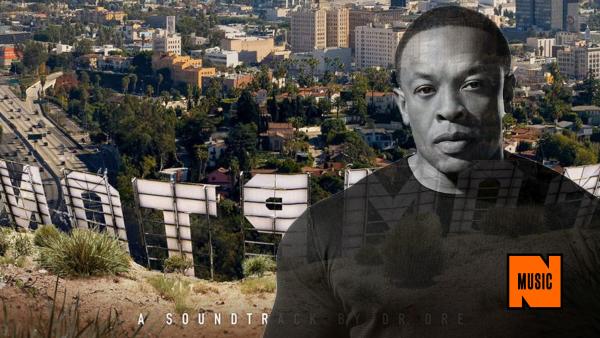Wochit
Dr. Dre’s ‘Compton’ Sells Almost 300,000 Copies In One Week
As expected, Dr. Dre’s first album in 16 years pushed some serious units in its first week. Compton, an iTunes exclusive, sold 295,000 equivalent album units, according to Billboard. Of that number, 276,000 are purely from sales. Compton should reach gold certification this year, assuming there’s no absurd drop-off next week.
Since its launch on June 30, Apple Music reportedly has already signed on 11 million users – thanks largely to a promotion offering the first three months of service for free – but it still only represents a piece of the streaming business. Spotify has more than 20 million and then there are other services, including Tidal, Pandora, Rhapsody, Rdio, Deezer, and others, all fighting for their piece of the pie.
With 1,500 streams the equivalent of one album sale, it’s hard to say that Dre would have completely closed that gap if Compton was available on every streaming service and physical and digital retailers, but the race would have undoubtedly been more competitive.
“Whenever you’re limiting the reach of your product, it’s going to have some kind of impact,” says Emily White, Billboard’s associate director of charts, social, and streaming.
This is just part of the new world of the music business. In the past, exclusives for consumers usually meant the purchase price of one album, ranging from $9.99 to $20. Still, indie retailers cried foul when a superstar artist released an exclusive through big-box retailers like Wal-Mart or Best Buy, often as a loss-leader to drive in-store traffic, back in the days when physical sales dominated the music businesses. But now, in the age of streaming, the stakes are higher with services hoping an exclusive will prompt consumers to sign on for yearly premium subscriptions, running in the range of $120 a year – at the lowest tier – to up to double that for additional users or premium sound quality offered by Tidal.
With the competition so fierce, streaming services are trying to separate themselves from their rivals by offering exclusives, which might help them gain some new subscribers, but could also backfire on the artists and alienate fans, who may sign on to one service, only to be annoyed when they find a rival has an exclusive from another one of their favorites.
In a sense, the music industry is following a model created by pay TV and video streaming services. “I think the music industry has seen how that kind of catalog fragmentation works for TV and movies and how distributors are able to play services off each other to get better upfront deals, and I think the music industry probably sees this and think we can play all these different streaming services against each other to try to leverage the best deals,” Billboard’s White says.
Yet, record labels and artists may be up for a rude awakening if they try to go this route. “The problem with that, there are very few artists wield the power to alter consumer habits,” White adds. “There are very few artists because their catalog is only on this streaming service that will actually move the needle for subscribers to change their habits and join a particular service. What we’re seeing is most artists don’t have that power. Consumers might be willing to have a Netflix account and Hulu and cable provider as well, they’re willing to split their TV and movie habits between different places to get Orange Is the New Black or all ofSeinfeld, I don’t think that most consumers feel that way about music. I think they mostly feel entitled to access whatever they want to, and that’s the biggest danger to catalog fragmentation in music.”

Complex
Dr. Dre's New Album "Compton" Is Here
The world says farewell to "Detox" as we welcome Dr. Dre's new album "Compton" with open arms.
Also, exclusives can possibly end up possibly hurting the artists who made those deals. White points to Rihanna as an example. Her single “American Oxygen” was initially released as an audio and video exclusive on Tidal in early April, more than a week before it was made available as a download on iTunes and the video appeared on Vevo and YouTube. The track peaked at No. 78 on the Billboard 100, Rihanna’s second-lowest charting single ever. Keep in mind this is the same singer who in 2013 set a record as the first artist to rack up 10 No. 1s on Billboard’s airplay-driven Mainstream Top 40 radio airplay chart. While it might be a leap to attribute the poor chart showing entirely to the exclusive windowing – the song, with its political overtones and mellow tempo, also marked an artistic turn for the singer – it undoubtedly played some part in its ability to reach a wider audience. “That’s a strikingly low peak for a Rihanna song,” notes White.






 Dr. Dre's 'Compton' and the Ramifications of Streaming Exclusives & Holdouts
Dr. Dre's 'Compton' and the Ramifications of Streaming Exclusives & Holdouts

